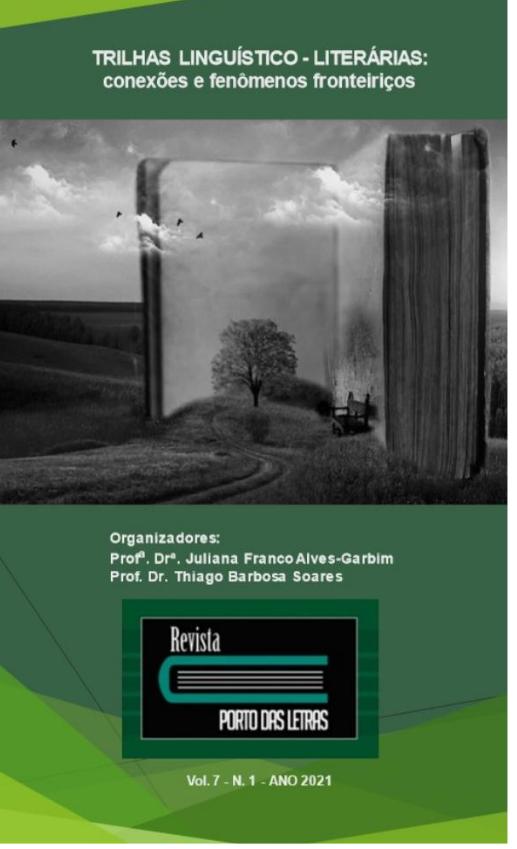necessary dead of some to expand the lives of others:
biopolitics and tanatopolitics in Cadáver Exquisito, by Agustina Bazterrica
Keywords:
Cadáver Exquisito; biopolitics; tanatopolitics.Abstract
In the dystopian novel Cadáver Exquisito, by Argentine write Agustina Bazterrica, a virus affects all species of animals on the planet. According to the government, the virus is lethal to the humans and, for this reason, most animals are sacrificed to avoid the contagion. Humanity is unable to consume animal protein; doctors say that vegetable protein is insufficient for the population; theories appear that the virus is a lie and cases of cannibalism happen in different parts of the world. In the face of mass hysteria, the government decides, as a way to restore the social order, legalize the consume of human flesh. In view of this narrative context, the objective of the work is to investigate elements of biopolitics and tanatopolitics in the novel and to understand how a policy focused in the life can, in some instances, become a policy that also decides on the death of the individuals.
References
BAZTERRICA, Agustina. Cadáver Exquisito. 3ª ed. Ciudad Autónoma de Buenos Aires: Arte Gráfico Editorial Argentino, 2018.
BAZTERRICA, Agustina. Agustina María Bazterrica y su “Cadáver Exquisito” en la FILBO 2019. [Entrevista concedida a] Periódico El Espectador, Colômbia. 26 de abril de 2019. Disponível em: https://www.elespectador.com/noticias/cultura/agustina-maria-bazterrica-y-su-cadaver-exquisito-en-la-filbo-2019-articulo-852411>. Acesso em: 29 de jul. de 2019.
BISET, Emmanuel. Tanatopolítica. Nombre: Revista de Filosofía. n. 26. 2012, p. 245-274. Disponível em: > <.https://revistas.unc.edu.ar/index.php/NOMBRES/article/view/4764/4562>.Acesso em: 20 jul. 2019.
ESPOSITO, Roberto. Bios: biopolítica e filosofia. Tradução M. Freitas da Costa. Lisboa: Edições 70, 2010.
ESPOSITO, Roberto. Communitas: origen y destino de la comunidade. 1 ed. Buenos Aires: Amorrortu, 2003.
FOUCAULT, Michael. História da Sexualidade I: A vontade do saber. Tradução de Maria Thereza de Albuquerque. Rio de Janeiro: Edições Graal, 1988.
NALLI, Marcos. A abordagem imunitária de Roberto Esposito: biopolítica e medicalização.
Interthesis.V. 09, n. 2. Florianópolis, 2012. p. 39-50. Disponível em: https://periodicos.ufsc.br/index.php/interthesis/article/download/1807-1384.2012v9n2p39/23513>. Acesso em 25 ago. 2019.
SÁ, Alexandre Franco de. Prefácio. In: ESPOSITO, Roberto. Bios: biopolítica e filosofia. Lisboa: Edições 70, 2010. p. 7-13.
SHOAH. 1985. Direção de Claude Lanzmann. França. Parte 1. Online (140 min). Disponível em: https://www.youtube.com/watch?v=Ccl7LOOoqe4.>. Acesso em 13 ago. 2019.
SOUSA, Kátia Menezes. Discurso e biopolítica na sociedade de controle. In TASSO, I., and NAVARRO, P., orgs. Produção de identidades e processos de subjetivação em práticas discursivas [online]. Maringá: Eduem, 2012. p. 41-55. Disponível em: http://books.scielo.org/id/hzj5q/pdf/tasso-9788576285830-03.pdf.>. Acesso em 15 ago. 2019.
Downloads
Published
How to Cite
Issue
Section
License
Os autores concordam com os termos da Declaração de Direito Autoral, que se aplicará a esta submissão caso seja publicada nesta revista (comentários ao editor podem ser incluídos a seguir).

